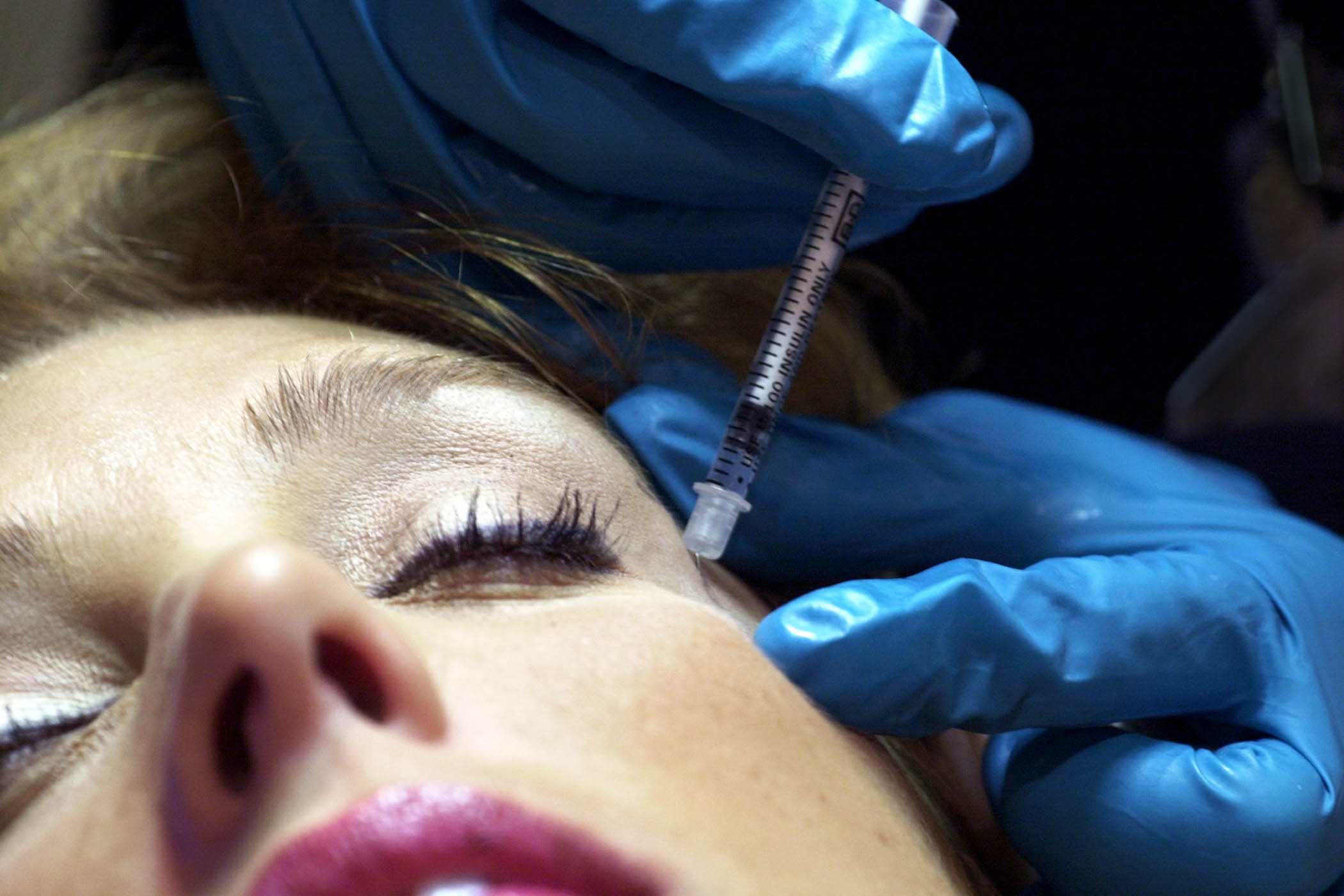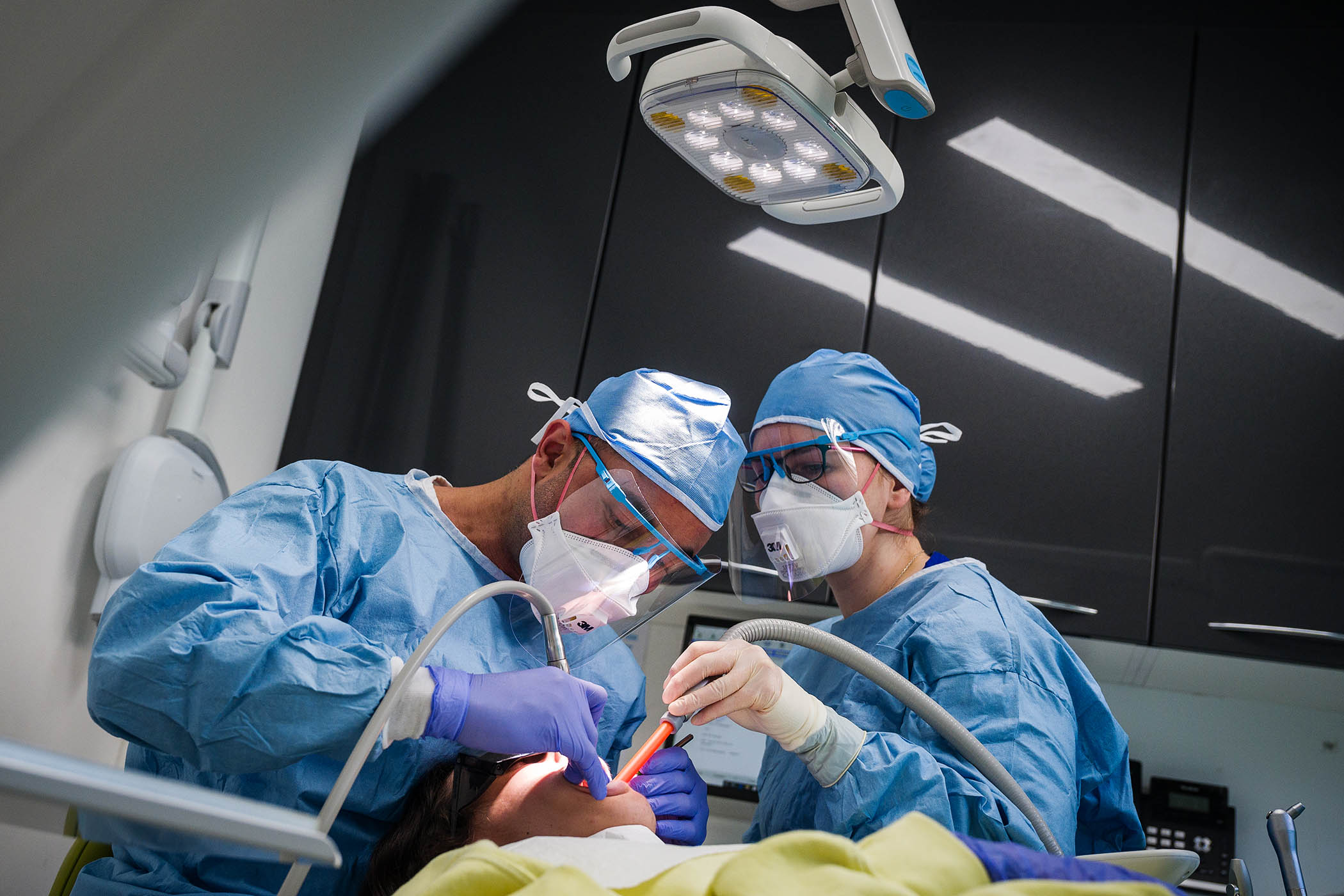A nation’s looks reflect its genetics, diet, fashion, cultural history – and, increasingly, these days, the state of its plastic surgery business. In Britain, for example, surgeons performing breast enlargements are the busiest; in Germany, liposuction is preferred; in Peru, nose jobs; and in Belgium, eyelid-tightening procedures. But a quirk in the British rulebook means a rising number of citizens are also sporting a troubling new look: botched.
Why? It starts with rampant demand. In this, Britain is no outlier. In 2024, close to 38m cosmetic interventions were performed around the world – including surgeries such as facelifts, and non-surgical procedures such as lip fillers – an astonishing rise of 40% since 2020.
In the UK, this market is valued at £3.2bn a year, and cosmetic surgery clinics have more than tripled in number since 2010: there are now an estimated 700.
It is a long-lived trend. In 1978, the New York Times announced cosmetic surgery has “long been considered the prerogative of celebrities, jet setters and tycoons”. But, it goes on, “the people who sit in front of the television set, rather than appear on it, have lately been having their faces lifted … their noses straightened, their sagging jowls and crepey necks smoothed”, explaining a jump in demand. Half a century on, that holds – and cosmetic procedures are getting ever more affordable.
Meanwhile, social media has raised the financial and social rewards for looking good and simultaneously squeezed the life cycle of cosmetic trends. “Instant body trends are emerging,” says Nora Nugent, president of the British Association of Aesthetic Plastic Surgeons (BAAPS). A new look might now appear every couple of years.
Doctors are calling for patients to be warned about these foreign ‘bargain basement’ treatments
Doctors are calling for patients to be warned about these foreign ‘bargain basement’ treatments
Then, too, an underrated explanation may be that stigma is falling. I have previously written that demand is no mystery – we all want to look good. Shame was holding us back, but as plastic surgery becomes more common, celebrities admit to having work done, and that hurdle is being removed.
There are other drivers, too. Despite predictions that men would create a lucrative new sector, women still undergo about nine in 10 treatments in the UK – in fact, the share of cosmetic work that was received by men fell between 2009 and 2022.
But one change is that weight-loss drugs, now available on the NHS, are fuelling a demand for skin-tightening operations: thigh lifts rose by 24% between 2023 and 2024, and “bingo wing” removal by 13%. “Around 50% of my patients coming in for a facelift in the last couple of years have been on a weight-loss drug,” says Nugent.
But demand is not keeping up with supply in Britain, particularly at the cheaper end of the market, which is where the trouble starts. About 431,000 people headed abroad for treatment in 2023, five times more than a decade ago, according to the Office for National Statistics. Turkey is a popular destination.
One side effect of this is that NHS hospitals are called on to fix things after these operations go wrong, and many do: where operations are cheap, regulation tends to be lax. In 2023, BAAPS reported that the number of people requiring hospital treatment after cosmetic surgery abroad had increased by 94% in three years. The body has previously estimated that the cost to the NHS for treating each botched operation was about £15,000.
Newsletters
Choose the newsletters you want to receive
View more
For information about how The Observer protects your data, read our Privacy Policy
Doctors are calling for patients to be warned about these foreign “bargain basement” treatments. But there are dodgy practices at home, too. “If we don’t get our own house in order, how can we go criticising overseas plastic surgery?” says Prof Vivien Lees, senior vice-president of the Royal College of Surgeons (RCS) in England.
A regulatory loophole means that any doctor on the General Medical Council register – the main body overseeing medics – can perform cosmetic surgery in the private sector whether or not they have surgical training. Turn up to certain clinics to get a facelift and there’s a chance it could be performed by a psychiatrist, say, or an eye doctor. Maniram Ragbir, the president of the British Association of Plastic, Reconstructive and Aesthetic Surgeons (BAPRAS), has estimated that about half the people claiming to be cosmetic surgeons in the UK would not be eligible for a plastic surgeon job in the NHS.
Brits can perform some cosmetic procedures, such as injecting Botox, without any qualifications at all
Brits can perform some cosmetic procedures, such as injecting Botox, without any qualifications at all
“You would have thought it is obvious that you have to operate in the area you are qualified in,” says Nugent. “Apparently not.” The shift has been gradual and regulators have not kept up – partly because a lack of data means they have been slow to spot this underground trend. While larger private hospitals tend to recruit qualified cosmetic surgeons from the NHS, the demand for cheaper surgery has led to a proliferation of small clinics that are not so picky. Breast enhancement can cost £8,000 at an upmarket clinic but £3,500 elsewhere.
Shockingly, too, Brits can perform “non-surgical” cosmetic procedures, such as injecting fillers or Botox, without any qualifications at all. Among other dangers, that means they may not bother to take a patient’s medical history. Beauticians can take short courses online and inject these potentially deadly liquids in unlicensed and unhygienic premises.
Meanwhile, unsatisfied customers have few places to take their complaints – high street Botox vendors are overseen by local authorities, which check health and safety but tend to have little medical expertise. Last year a British woman died after a non-surgical butt lift performed in Gloucestershire.
Things may be changing for the better. A growing number of doctors and nurses are helping fix the supply problem, at least when it comes to non-surgical treatments. Many are training to administer Botox in their spare time, mostly to earn some extra cash.
Harley Academy, which trains medical professionals to inject dermal fillers and the like, has seen a 25% rise in new recruits every three months.
Meanwhile, the government announced this summer that it is planning a clampdown: people administering non-surgical, high-risk procedures such as Brazilian butt lifts will need to be medically qualified. But this only fixes one end of the problem. The RCS wants a change in the law so that serious cosmetic procedures may only be performed by qualified surgeons, bringing UK rules in line with its peer countries.
Until then, Britain’s plastic surgery business will continue to look like a rather odd outlier – and so will many of its faces.
Photograph by Joey McLeister/Star Tribune via Getty



